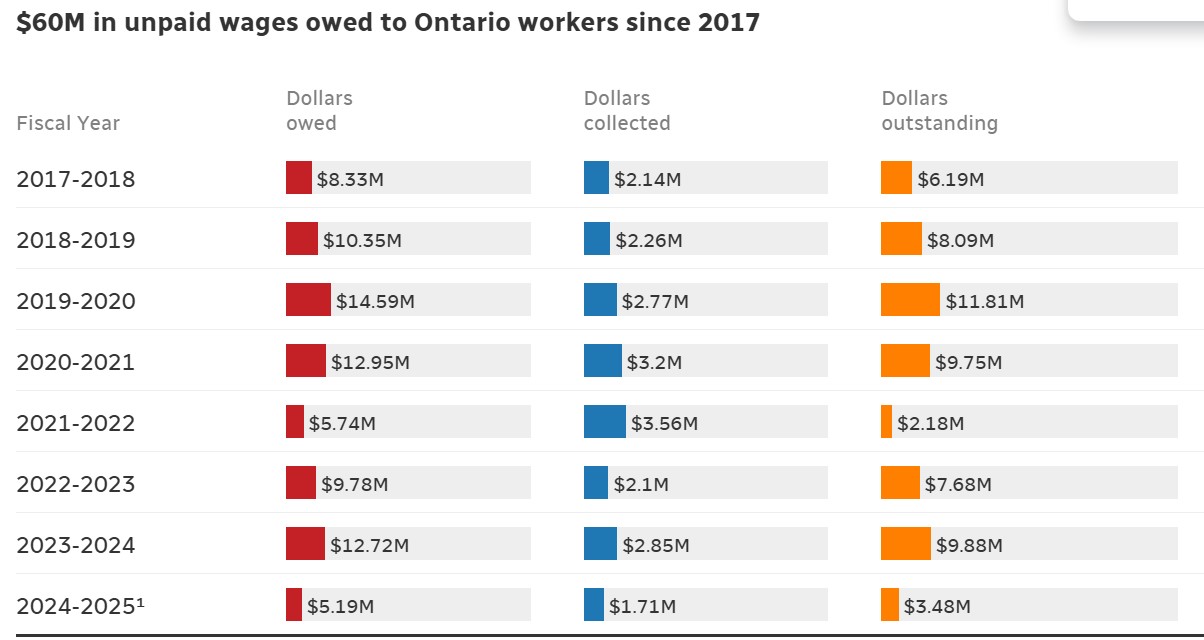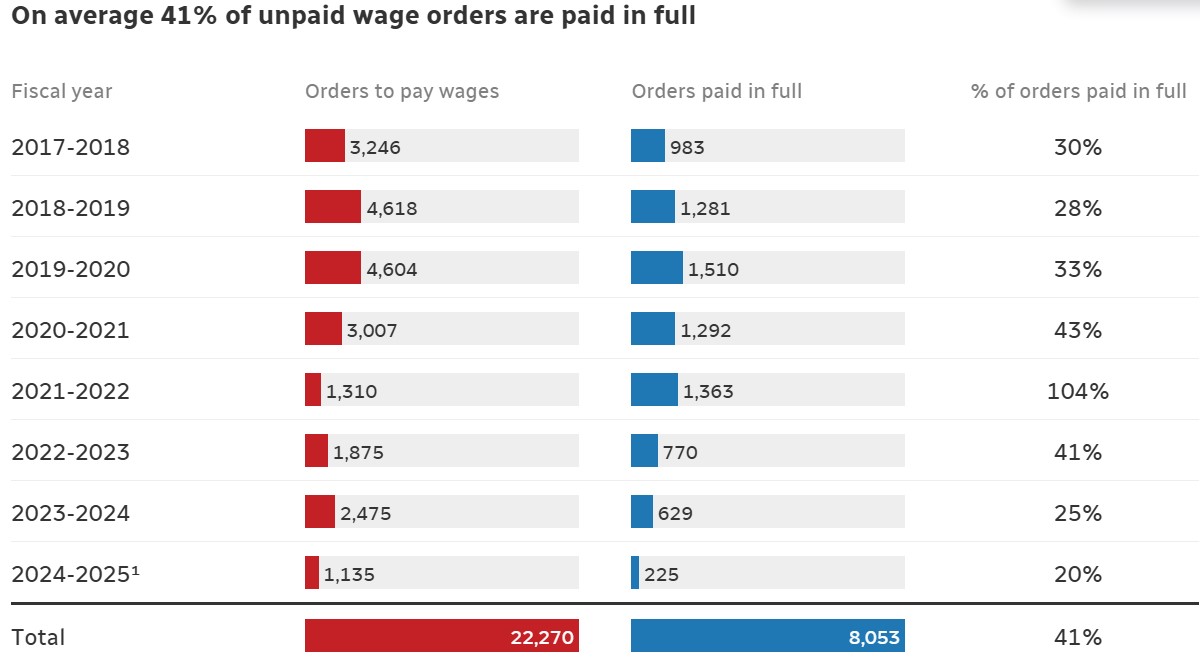
Government says it is stepping up enforcement, increasing fines

Employers owe workers in Ontario a total of $60 million unpaid wages that remain uncollected by the provincial government since 2017, according to a report.
The records – obtained by CBC Toronto through a freedom of information request – cover the period from the 2017-2018 fiscal year to July 2024, and include orders from the Ontario Labour Relations Board and notices of contravention related to violations such as payroll discrepancies.
When an employer fails to comply with a Ministry of Labour order to pay within 30 days, the case moves to the Ministry of Finance for collection. Yet, data reveals that, on average, less than 30% of the money owed has been recovered during this time frame, according to the report.
Source: CBC
However, when orders get referred to the finance ministry after 30 days of non-payment, only 41%, on average, were paid in full between 2017 and July 2024, according to the CBC report.

Source: CBC
In 2023, the federal government issued 542 wage payment orders against trucking companies relating to wage theft, according to a previous CBC report, citing government data. By July of this year, there were already 491 orders.
And there has not been enough action from the government to address the issues, said stakeholders.
"I feel that the system is really broken right now," said Deena Ladd, executive director of the Workers' Action Centre in Toronto, in the CBC report.
Wage theft is most prevalent in gig work, truck driving, cleaning, construction and health care and among workers with precarious immigration status, said Ladd.
"The numbers are very staggering … in terms of the number of wage theft complaints that we're dealing with on an everyday basis," Ladd said. "It's really terrible."
"I think it's a big issue, but I think ... to a certain extent, at least until now, it's been a relatively forgotten issue," said Sharaf Sultan, an employment lawyer who specializes in workplace related immigration files, in the same report.
To address the issue, there needs to be a change in culture within the government, said Sultan.
"Unfortunately, I think there is an understanding out there that the ministry is not as hard as they should be and you can delay [paying wages] with little to no consequence," the employment lawyer said, according to CBC.
He noted that the government is well-equipped with enforcement tools to make the employers pay.
"I think there needs to be a cultural shift whereby there is an understanding of the seriousness of wage theft," Sultan said.
"I think that will likely come through harsher enforcement, particularly on bigger cases and to demonstrate to employers that there are serious consequences associated."
Previously, the Workers' Action Centre in Toronto claimed that a businessman in the city continues to face claims of wage theft and government orders to pay employees even though he still owes workers a total of about $290,000 unpaid wages.
But the provincial government has stepped up, said Ministry of Finance spokesperson Scott Blodgett, according to CBC.
The government has improved enforcement tools and recently increased the maximum fine for an individual convicted of violating the ESA from $50,000 to $100,000.
Ontario also issues letters and makes follow up calls if employers don't pay their orders. If the employer continues to refrain from complying with the order, the ministry can register and enforce warrants of seizure and sale, put liens on property and garnish bank accounts.
"The ministry's efforts have resulted in a recovery of approximately $105.4 million in wages and other money owed to employees over the last five fiscal years and has completed a total of 1,025 inspections during the last fiscal year," said Blodgett.
Previously, Canadian HR Reporter reported how a businessman in Toronto continues to face claims of wage theft and government orders to pay employees even though he still owes workers a total of about $290,000 unpaid wages.